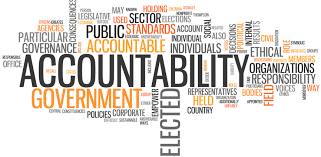
Since its inception in 1947, the process of accountability in Pakistan has devolved into a cycle of political victimisation and manipulation. Over the course of history, Pakistan has seen at least 11 accountability laws, three federal accountability institutions, and other similar mechanisms and departments. However, blatant abuse of the accountability laws continues. Lack of maturity and merit in the country's accountability system obstructs the development of a strong, long-lasting political and democratic system.
From March 1959 when President General Ayub Khan introduced laws like Public Offices Disqualification Order (PODO) and Elective Bodies Disqualification Order (EBDO), under which 75 politicians including former prime ministers; Hussain Shaheed Suhrawardy and Feroz Khan Noon, were disqualified. To July 2018 when PML-N Vice President Maryam Nawaz was disqualified from contesting elections. One thing stays common i.e., the removal of corruption charges from politicians after a certain time.
In the case of Ayub Khan none of the politicians were tried or convicted and in the case of Maryam Nawaz, Justice Aamer Farooq declared, National Accountability Bureau (NAB) was responsible for providing evidence to support the claims of corruption. Although the case might be valid, NAB failed to provide sufficient evidence to support it.
Pakistan has a rich history which shows how political leaders have used accountability as a tool to silence and suppress their opponents. The use of accountability as a tool for political victimization has increased over time. In 1999, ever since the introduction of National Accountability Ordinance (NAO) which eventually turned into National Accountability Bureau (NAB) there have been multiple efforts by ruling parties to manipulate accountability laws to eliminate their political opponents.
To quote historical incidents where accountability was used to push political opponents against the wall; In the 1990s, Nawaz Sharif's Ehtesab Bureau was solely focused on prosecuting the opposition PPP. When it became the NAB under Musharraf, it applied all its resources to identify a culprit in PML-N. The situation hasn't changed much even with Imran Khan and now Pakistan Democratic Movement (PDM) in power.
With time multiple judgments and remarks from superior courts have characterized the current model of NAB’s accountability as a key tool of political manipulation. In its thorough decision on Khwaja Saad Rafique's bail application in March 2020, a two-member Supreme Court bench referred to NAB as a tool of political victimization and harassment. In addition, former chief justice of Pakistan, Justice Asif Saeed Khosa, described NAB as a "lopsided process of accountability" and a tool for "political engineering" which is consistently losing its credibility. According to former chief justice of Pakistan, Justice Gulzar Ahmed, "NAB no longer fulfils its purpose and is instead being used for exploitation."
Most of the cases against opposition are prepared by National Accountability Bureau (NAB), which is a powerful anti-corruption organisation
With the recent acquittal of PML-N vice president Maryam Nawaz in the Avenfield corruption charges, renowned journalist Ahmad Noorani in a tweet wrote, “After Dawn leaks, false and baseless cases were established against Nawaz Sharif and Maryam Nawaz by Army and ISI. These cases were as absurd as Sharif’s latest dealings with the Army.”
So, a question arises here: do political leaders use accountability as a tool to silence their opponents or is there any other body that pushes the political leaders to make the cases that become null and void after serving their mission.
No matter who is responsible for making the cases, but one thing is for sure and that is this misuse of accountability is curbing the development of a democratic system in Pakistan and the reason why none of the Prime ministers in the history of Pakistan has ever completed their tenure, hence crippling the very idea of democracy.

